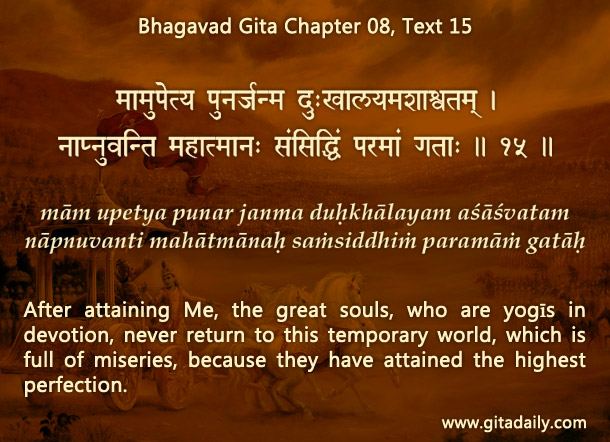The pains of life don’t sentence us to a life of pain
The pain of life may be unavoidable, but the life of pain is definitely avoidable.
Pain is one of the greatest realities of life. Our bodies are fragile, and even more so is our heart. The world we live in is full of dangers that can injure our body, and society is filled with people who can break our heart. We certainly can and should take measures to protect ourselves from pain, yet despite all the protective walls we may build, pain will seep in somehow—and sometimes it may even burst through, smashing to pieces the walls we have built.
Thankfully, the Bhagavad Gita (8.15) makes us aware of this grim, even gruesome, reality of life by stating that this world is a place of distress. Yet, the same Gita’s message leaves Arjuna, at its conclusion, feeling calm and confident, not distressed and discouraged. How can this happen?
The Gita explains that though the pain of life is unavoidable, that does not mean we are helplessly sentenced to a life of pain. We all have the capacity to infuse our life with a deeper meaning and a higher purpose that can make life’s pain more bearable. Gita wisdom explains that we all are precious parts of God, and he has given each one of us gifts by which we can play parts in his plan. Irrespective of whether those parts are small or large in the world’s eyes, we can, by playing our part, experience and relish a non-material fulfillment so energizing that the pains of life pale in comparison.
When we act in a mood of service to our Lord and of service to our fellow living beings, then whatever we are able to do and contribute becomes so meaningful for us that the pain we face along the way becomes worthwhile. That’s why, rather than trying to protect ourselves from the pains of life, we should focus on pursuing purpose in our life—the purpose of serving our Lord using the gifts he has given us in the positions that we are placed in.
The more we cultivate such a purpose, the more our life will become infused with and enriched by that purpose. Then, the defining truth of our life will be that it is a life of purpose, not a life of pain—a life of divine purpose, not a life of mundane pain.
Summary:
- The pain of life is unavoidable because our body and heart are fragile, and the world and people in it are sure to hurt us sooner or later.
- Yet we don’t have to live a life of pain because we can infuse our life with the divine purpose of loving service, which can enrich our life with fulfillment and meaning, making any unavoidable pain bearable—even worthwhile.
- We should focus our energy not on freeing our life from pain but on filling our life with a purpose that will raise us beyond pain.
Think it over:
- Why is the pain of life unavoidable?
- How can we ensure that the pains of life don’t sentence us to a life of pain?
- In the face of life’s pains, how can you shift the focus of your efforts?
***
08.15 After attaining Me, the great souls, who are yogīs in devotion, never return to this temporary world, which is full of miseries, because they have attained the highest perfection.


Leave A Comment